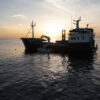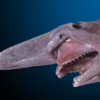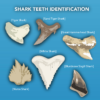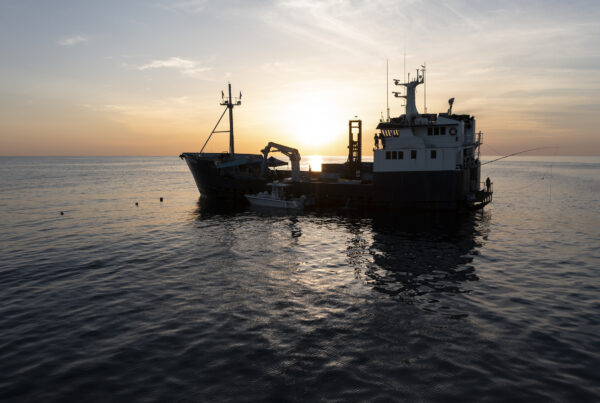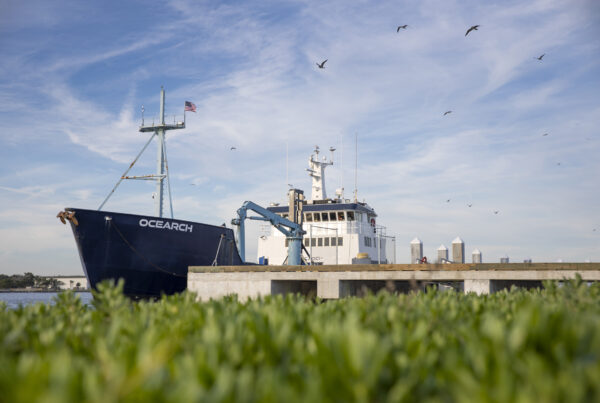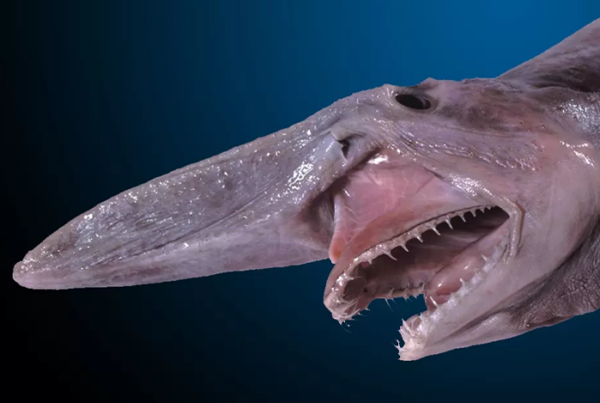Expedition Nova Scotia
OCEARCH’s premier tracking studies and previous expeditions have shown that the waters off Nova Scotia are a critical location this time of year for Northwest Atlantic white sharks. This is why OCEARCH is returning to Nova Scotia for the fourth year in a row to embark on its 42nd Ocean Research Expedition. Working with 42 multidisciplinary scientists from 29 research organizations, OCEARCH will collect data for 24 different science projects which will help form a complete picture of the life and health of the white shark in the Northwest Atlantic Ocean.
OCEARCH’s Northwest Atlantic White Shark Study is the most comprehensive and advanced study of white sharks in the world and includes full health assessments of each shark including reproduction, prey identification, microbiome studies, population genetics, movement, temperature and depth studies through the use of 3 different tags and more.
After tagging 73 white sharks in the Northwest Atlantic, 26 of which were tagged off of Nova Scotia, OCEARCH has helped unveil this region as a vital hotspot for white sharks. The organization has sampled, tagged and released juveniles, subadults, and adults of both sexes in Canadian waters, including the largest shark of their Northwest Atlantic White Shark Study, Nukumi, who was approximately 17.5 ft long and 3,500 lbs at the time of tagging. Finding animals in a variety of life stages shows that the waters off Nova Scotia are important to the entire life history of the Northwest Atlantic white shark population.
“We’ve learned this part of Atlantic Canada is very important to the NW Atlantic white shark population as a summer feeding ground. It’s all about the rich food resources there in summer, including fish, seals, and the occasional dead whale,”
-Chief Scientist Dr. Bob Hueter, OCEARCH
Expedition Nova Scotia 2021 will help expand OCEARCH’s knowledge about the white sharks that spend their summer and fall in Canadian waters. This expedition aims to increase the study’s sample size in this region, with a focus on expanding the data set for adult and subadult animals. OCEARCH’s science team has a target of sampling a total of 100 sharks in the Northwest Atlantic and they have just 27 animals left to meet this goal.
“Nova Scotia has become our favorite place to work in the NW Atlantic. The people’s commitment to objective science with an ocean first disposition is the most impressive we have seen anywhere in the world. We are starting to wrap up our work on this population of sharks, as we now know when, why, and what the sharks are doing in these waters. This trip will help get the scientists the sample size they need for good defensible science, whilst they publish and solve the full life history of a regional population of white sharks. A first in history!” stated Chris Fischer, OCEARCH Founder and Expedition Leader.
The presence of sharks off Nova Scotia is a sign of a healthy and abundant ocean. OCEARCH aims to maintain this health in the waters off of Atlantic Canada by sharing their research and data with the Canadian government which can then be used to help influence public safety and conservation policies. Public safety is a top priority to OCEARCH and is taken into strict consideration while on expedition. The organization hopes to equip the Canadian people with the information they need to continue to have a healthy relationship with their ocean and the sharks that call it home.
Expedition Nova Scotia 2021 takes place from September 7 to September 30 and will begin in the waters off of the Canso Islands with a final docking planned in Lunenburg. The public is encouraged to follow along with the expedition in real time on social media (@ocearch) and online at ocearch.org.

